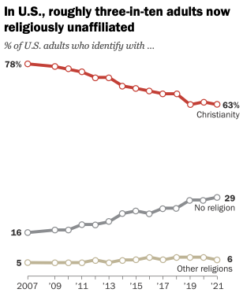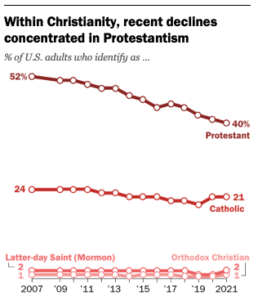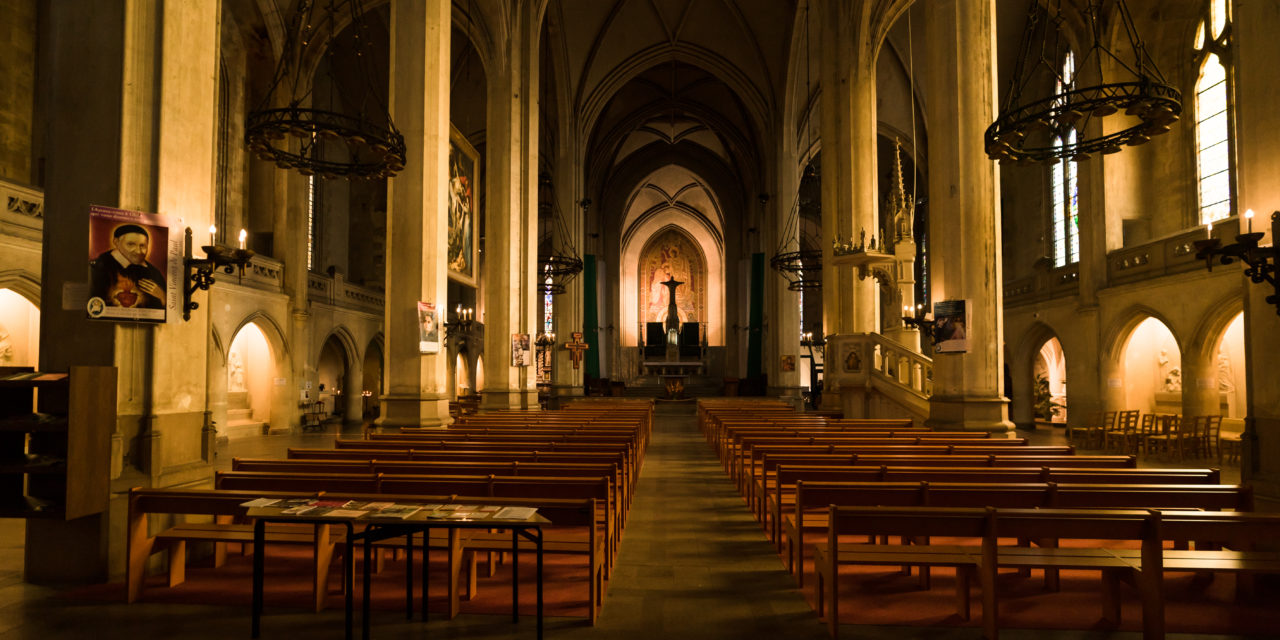A new poll has found that the share of Americans who self-identify as Christians is continuing to shrink – and that the “nones,” or those who identify with no religion, are the fastest growing “religious” group in the nation.
The poll, conducted by the Pew Research Center, found that self-identified Christians now make up 63% of the adult population in the United States – 12 points lower it was just one decade ago in 2011.
Pew includes Protestants, Catholics, members of the Church of Jesus Christ of Latter-day Saints, and Orthodox Christians as “self-identified Christians.”
Those who call themselves “nones” – described by Pew as atheists, agnostics or those who believe “nothing in particular” in terms of religion have increased by 10 points in a decade, from 19% in 2011 to 29% today.

Photo Credit: Pew Research Center
Pew found that “the recent declines within Christianity are concentrated among Protestants … the Protestant share of the population is down 4 percentage points over the last five years and has dropped 10 points in 10 years.”
Meanwhile, “the Catholic share of the population, which had ticked downward between 2007 and 2014, has held relatively steady in recent years. As of 2021, 21% of U.S. adults describe themselves as Catholic, identical to the Catholic share of the population in 2014.”

Photo Credit: Pew Research Center
So, what’s behind this decline in self-identified Christians in the United States? Is America really becoming less Christian?
In his book The Myth of the Dying Church, Focus on the Family researcher Glenn Stanton reveals what’s really behind the decline in self-identified Christians in the U.S.
And it’s not because of committed, orthodox, devout Christians are disappearing. Rather, the decline is largely due to Christians abandoning liberal churches in droves.
Stanton writes:
- “Liberal churches are hemorrhaging members. Churches that are bailing on Christian orthodoxy – those denying the deity of Christ; rejecting the reality of sin; doubting the historical reality of Christ’s death and resurrection; and embracing abortion, gay, and gender politics – are all in drastic free fall.”
- “Biblical churches are holding strong. Churches that are faithfully preaching, teaching, and practicing biblical truths and conservative theology are holding stable overall. Some are seeing steady growth and others are exploding.”
- “The Nones are not new unbelievers. The infamous ‘nones’ – those reporting to have no particular institutional faith – are indeed a growing category … They are not folks who have left a once living faith but rather are those who merely had a cold or lukewarm family history of church identity and now feel more comfortable saying, ‘I don’t really identify with anything.’ It’s not a change in belief. Instead, it’s an honest explanation for where they’ve always been.
So, buried beneath the headlines that the number of Christians are shrinking, and the “nones” are rising, is an important consideration.
It’s not correct that committed, devout Christians are leaving the faith; it is true that Christians are rapidly leaving liberal churches, and that those who never had much of a faith life to begin with are more honestly recategorizing themselves as “nones” instead of Christians.
For the alleged decline of Christianity in the U.S., there is more than meets the eye.
Photo from Shutterstock.






